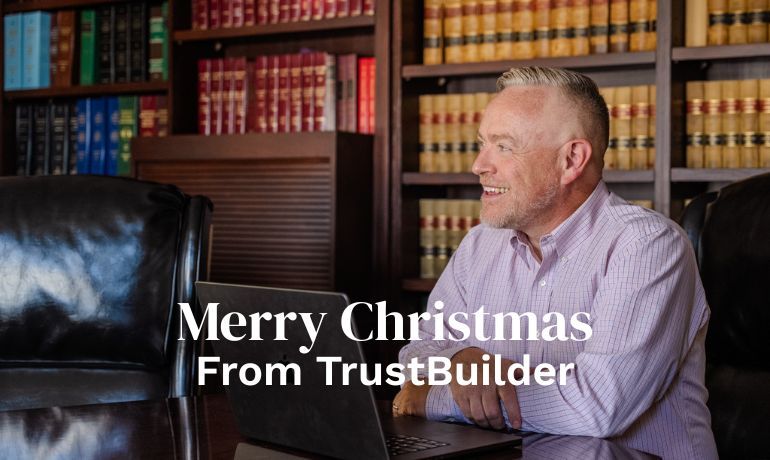Building Trust Across Cultural Divides
Today, workplaces are more diverse than ever, with people of different cultures and backgrounds working side by side. In this environment, where cultural differences can create unconscious divides between co-workers, trust is more important and complex than ever.
While trust is a universal need, how it is built or broken can vary dramatically across cultures, backgrounds, and individual perspectives.
At TrustBuilder, we understand that a one-size-fits-all approach to trust doesn't work. That's why our system is rooted in a personalized methodology that accounts for cultural and individual differences, enabling organizations to foster trust where it matters most: person to person.
The Challenge of Cultural Differences in Trust
In multicultural teams, misunderstandings often arise not from ill intent but from differing expectations about what trustworthy behavior looks like. In fact, what may build trust in one culture may break it in another (e.g., different communication styles and the implications of smiling in western culture vs. in the far east). Within an organization, one employee might see directness as a positive sign of honesty, while another may view it as abrasive or disrespectful. In one culture, following protocol may demonstrate integrity; in another, flexibility might be the hallmark of reliability.
If not recognized, acknowledged, and addressed, these differences can create hidden friction, undermine collaboration, and slowly erode team dynamics. To genuinely build trust across cultural divides and to avoid inadvertently breaking trust, organizations need to go beyond generalized team-building exercises and embrace tools that identify the nuances of individual trust perspectives.
TrustBuilder's Individual Profile
TrustBuilder's system is based on a core insight: individuals prioritize different factors when evaluating trust. Although this may seem like an obvious assumption when viewed in the abstract, it has a real-world impact on interpersonal relationships.
For example, some may value competence and consistency as the most critical aspects of trustworthiness, while others may be more attuned to empathy, fairness, or transparency. Preferences are shaped by various factors, such as sex, personal experiences, communication styles, and, yes, cultural context.
Our trust-building methodology begins with a comprehensive assessment that identifies the factors each individual considers most important in building or breaking trust. Each individualized profile stack-ranks 30 trust Builders, and 10 trust Breakers in the order from greatest to least importance.
Each participant in our TrustBuilder survey receives a personalized profile outlining their trust-building blueprint, weighing the importance of multiple factors in assessing what builds (or breaks) trust in their relationships with co-workers, team members, supervisors, and even the organization they work for.
Our clients are frequently surprised at our survey results, because we all share an inherent, unconscious assumption that others share our perspectives when it comes to a bedrock concept like trust. However, the results frequently show that a co-worker whom an employee believes they know fairly well places very different values on specific behavioral traits when indicating what constitutes trustworthiness.
This insight is valuable in any setting, but is even more crucial in multicultural settings, where different cultural norms can influence how these traits are prioritized and interpreted. Why is this critical? If you don't know what traits others value, you won't be able to demonstrate them. In that environment, your trust divide will grow, rather than diminish.
Bridging Cultural Gaps with Data-Driven Insights
TrustBuilder's approach doesn't stop at the individual. We aggregate and analyze data across teams to identify where cultural or interpersonal trust gaps may exist. For a simplified example, if a team includes members who predominantly value empathy and others who prioritize results and performance, misunderstandings can arise despite good intentions on both sides. But more often, the gaps are more complex and nuanced. Rather than dramatic rifts, there are subtle cues that lead to miscommunication, misunderstandings, and stymied progress on achieving communal goals.
With our system, managers gain visibility into these differences, allowing them to:
- Tailor communication and management strategies
- Facilitate a better understanding between team members
- Prevent unnecessary conflict and misinterpretation
- Foster inclusive environments where everyone feels seen and respected
Our workshops and consulting sessions help leaders and teams use these insights in real-world interactions. By understanding what trust looks like to each person and why, organizations can build stronger, more culturally attuned relationships, and do it efficiently.
From Awareness to Action
Recognizing cultural differences is just the beginning. TrustBuilder provides actionable strategies to bridge divides and strengthen bonds, which may include specific suggestions to help employees:
- Adapt leadership styles to reflect team preferences
- Facilitate trust-building conversations based on profile insights
- Coach teams to practice empathy and active listening across cultural lines
Building trust across cultural divides is ultimately about honoring individual perspectives while working toward a common goal. Even more, it's not a "one-size-fits-all" template that assumes cultural differences are uniform; instead, it is based on direct interpersonal relationship-building. In short, it's not about changing anyone's values but creating mutual respect and understanding.
Empower Your Organization with TrustBuilder
Cultural diversity can be a strength, giving your team broad perspectives and new avenues into innovative ideas and approaches. However, that strength only becomes evident when interpersonal and team trust is strong enough to support it.
TrustBuilder's unique, individualized system empowers organizations to build trust at every level, across every background. By identifying what matters most to each person, we help teams communicate more effectively, collaborate more seamlessly, and perform at their best.
Ready to unlock the power of personalized trust-building in your diverse organization? Contact TrustBuilder today to schedule a presentation or learn more about our assessment tools and consulting services. Let us help you build a workplace where trust bridges every divide that stands in the way of achieving your shared goals.
Recent Posts


![SYNTHESIS [2026] in light blue text.](https://lirp.cdn-website.com/f969fb45/dms3rep/multi/opt/TB_Horizontal_White-b3af8ef2-1920w.png)









